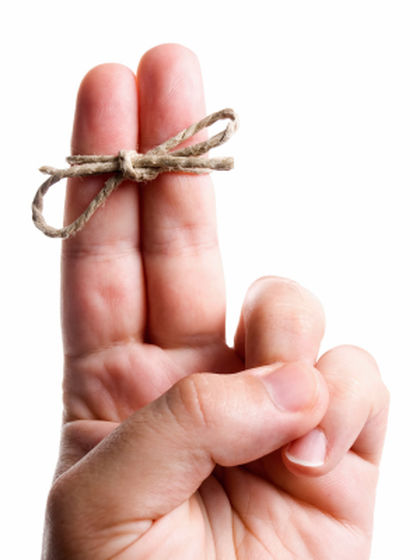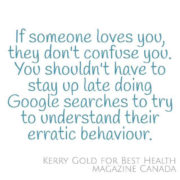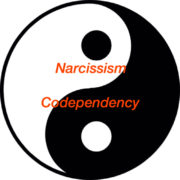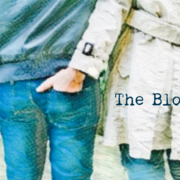Codependency originated around the early 80’s to help families with alcohol and drug problems. It stemmed from the idea that the whole family system needs to be addressed to achieve recovery, and that certain family members may be hindering the process by enabling the substance abuser. The word and the concept are still wildly popular today, and hundreds of self help books exist to serve you.
 Much of the mantra preached in them tells you codependency results from a childhood that was not nurturing, and that your repressed pain must be re-experienced, purged and you must detach from your abusers, emotional or otherwise. They do not generally distinguish genuine child abuse from poor parenting, though that can have extremely adverse outcomes as well. The black and white treatments prescribed are a one-size-fits-all prescription that pathologizes caring for others, which is abhorrent to me.
Much of the mantra preached in them tells you codependency results from a childhood that was not nurturing, and that your repressed pain must be re-experienced, purged and you must detach from your abusers, emotional or otherwise. They do not generally distinguish genuine child abuse from poor parenting, though that can have extremely adverse outcomes as well. The black and white treatments prescribed are a one-size-fits-all prescription that pathologizes caring for others, which is abhorrent to me.
I absolutely refuse to pathologize caring for others, but if you are giving support to your partner or your family to the detriment of your own mental, emotional, and physical health, and you ask yourself “Am I codependent?”, would you like to learn some healthy alternatives? Some symptoms of codependency can be detected by asking yourself these questions. Do you sometimes feel reluctant to express your needs? Do you tell yourself that these behaviors are the only way to maintain peace? Do you insist to yourself that this person is the only one who can make you happy? Do you understand the difference between assertiveness and aggressiveness?
This form of anxiety often means you spend a ton of time trying to conform to your partner’s or your family’s wishes. Perhaps it would help to understand the difference between co-dependence and interdependence. There is a difference between inter-dependency and codependency. In codependent relationships, the partners have difficulty being themselves while being in the relationship, resulting in a great deal of anxiety.
Often, codependent people feel that they “should” be independent. This tends to create unhelpful black-and-white, all-or-nothing thinking: either you are totally independent, to the point of being unrelated, or you are codependent. This black and white outlook can leave you feeling stuck. Codependency treatment offers the chance to increase your recognition of detrimental behaviors and to redirect them towards a more authentic way to live.
In fact, you cannot be both in a relationship and totally independent. The challenge is to be interdependent, recognizing that you need your partner and your partner needs you…but both of you also need to be individuals. Where the so called gurus of co-dependence get it wrong is the idea that all relationships should be equal, 50-50 at all times. This is both impossible and juvenile in that tit-for-tat score-keeping becomes entrenched. Relationships are always undergoing change, and there is always some degree of hierarchy. And it differs in divergent areas of strength for each person, and under different circumstances.
The whole idea that your formerly difficult childhood necessarily leads to pathology, means it becomes a “disease of caring”, where parents or guardians from your past hold the puppet strings to your future. And there is plenty of research that demonstrates individuals who have undergone trauma are not necessarily damaged by it. Many report they have been strengthened by what they went through both in their priorities and their family relationships.
So what to do? First, I want to say in no uncertain terms that my answer to the question in the title is YES. What needs to happen for codependency recovery to succeed is an examination of many caring behaviors, and the possibility that some may need modifying and some may not. Each relationship is different. That is what gives them texture and life! The pop imposters have also cast a wide net in their list of symptoms. Heck, everyone is codependent to them, including the therapists that are trying to assist! But apparently it sells books. We want easy, well defined answers—a diagnosis–in our instant satisfaction tell-me-why-now society.
I can think of one case where a mother has been engaged in trying to help her son recover from his heroin addiction for over ten years. He has been in and out of various rehab facilities and programs. She has been told she is an enabler, and that she must cut off all aid to her adult child. This is the black and white approach that delivers judgement and accomplishes nothing. Somewhere in that morass of trying to help lies a compromise, a carefully considered assessment of what behaviors work and what might need to change. Perhaps an inventory of coping skills is in order, but inducing guilt for caring is destructive.
The term codependent is here to stay, but please do not allow it to make caring for others into a disease. Extremes need help, and codependency treatment can come in the form of understanding these unhealthy behaviors are learned habits fueled by expectancies of comfort or the reduction of something negative, such as poor self esteem. Caregiving is not enabling, and what works in one situation may not work in another.











Leave a Reply
Want to join the discussion?Feel free to contribute!